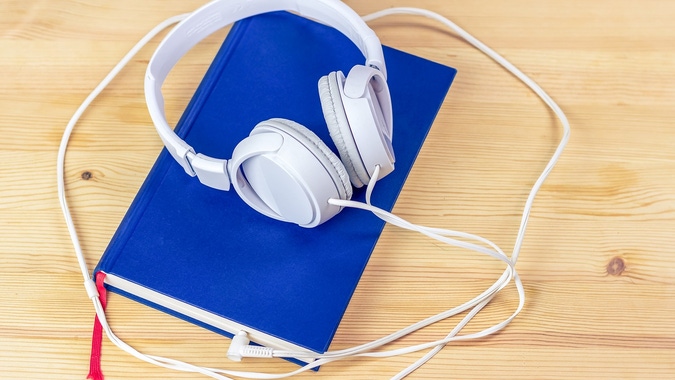Reposted from Entrepreneur.com
Since we were children, it’s drummed into our heads that consistent reading is one of the essential keys to making us, well-rounded people. Even outside academia, it is essential for us to enjoy some books, whether fiction or non-fiction, leisurely.
But in today’s world, reading is more complicated than ever. There is the assumption that if we are not reading for work or academic reasons, we should read for entertainment or self-development purposes.
The problem is that the world as we know it already entertains us, and with far less effort than it takes for us to read a book.

The Era Of Quick Entertainment
It’s no secret that we live in the age of the internet, and one of the hallmarks of this age is that entertainment is bit-sized, and these bites are becoming smaller than ever.
We spend approximately a third of our lives looking at one screen or the other, and a lot of these screens will be showing viral 1-minute or 30-second videos that entertain us without asking us to do too much.
On top of the ease of accessing easily digestible information, daily life has the constant hustle and bustle. That doesn’t always leave enough time for people to sit down and read a book the way they might have a decade or more ago.
It is, therefore, no surprise that reading culture is declining across the board. For example, reading rates have been down by 7% in the last decade among American adults, and research also shows that children are reading and enjoying reading less than ever before.
With alarming stats like this, there is concern about the total death of reading culture altogether. Thanks to the advent of audiobooks and the circumventing of common barriers to reading, things are looking more positive.
Celebrity Involvement
The publishing industry has certainly noticed this, hiring celebrities to voice audiobooks and expanding its distribution of them. Audiobook publisher, ABP Publishing, partnered with Audible and Zebralution and other digital media distributors to distribute non-fiction audiobooks across languages and topics, including business, personal development, popular psychology, parenting, and healthy living.
The publishing industry has noticed this, hiring celebrities or highly qualified voice actors to voice audiobooks and expanding its distribution of them.
For example, the large international audiobook publisher, ABP Publishing, partnered with Audible, Zebralution, and other digital media distributors involved a former opera singer in the choir of the Frankfurt Opera to voice non-fiction audiobooks in German. Audiobooks in other languages use voice actors with a rich background, known in various professional fields.
Celebrity involvement is bound to draw attention. A classic example of this is celebrity voiceovers for animated films that have helped many such as the Lion King and Zootopia, reach box office success and global acclaim.
The power of celebrity has proven palpable over the years, extending to the world of audiobooks, with consumers flocking to hear their beloved books read by their favorite celebrities.
Some of these include the actor Tom Hanks who has provided the audiobook voice for Ann Patchett’s 2019 novel “Dutch House,” Robert Leckie’s “Helmet for My Pillow,” and Stephen Colbert’s “I Am a Pole.”
Actors have also provided voice readings for classic novels such as Jake Gyllenhaal, providing the reading for ‘The Great Gatsby’ by F. Scott Fitzgerald and Anne Hathaway voicing ‘The Wonderful Wizard of Oz’ by L. Frank Baum.
Audiobooks Growth
The audiobooks boom is evident and grew in 2019 to 2020 per household in the US, and Deloitte expects this trend will rise over the next few years.
There are several reasons for this. First, there is the apparent convenience of consuming books in an easily digestible format and the draw of celebrities reading audiobooks.
However, there might be a more profound emotional aspect to all of this. According to a University College London study, audiobooks can elicit a significant emotional response from listeners during critical moments, sometimes even more than TV and movies.
Then there is the speed at which people can read books. Recent reports have touched on those who set yearly reading goals of a certain number of books, a growing trend. While physically reading a book will take a certain amount of time, listening to a whole book can take only a few hours.
More people find themselves drawn to audiobooks. With any luck, the downward trend of reading, especially among younger people, can be reversed.
For the publishing industry, it means its business model can evolve, and books continue to exist within the world, both now and in the future, and while many of us might not read, we can certainly listen.